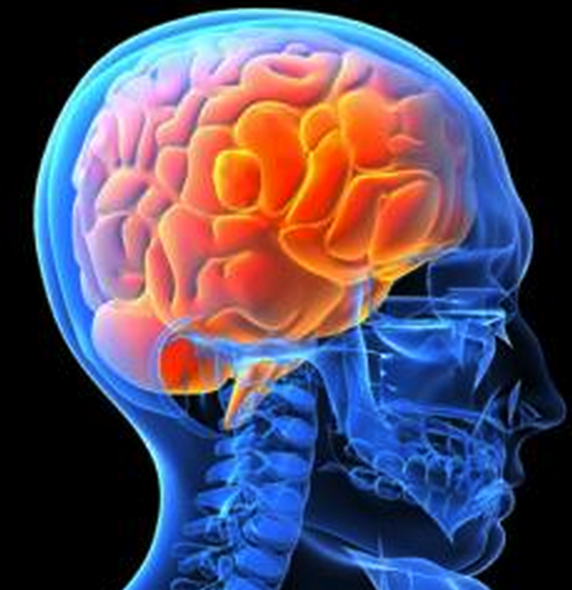Addiction | Expert Feedback on the Surgeon General's Report on Addiction

 Last November, the United States Surgeon General, Vivek Murthy, MD, announced the release of the first-ever report on substance use, abuse and addiction.
Last November, the United States Surgeon General, Vivek Murthy, MD, announced the release of the first-ever report on substance use, abuse and addiction.
Dr Murthy had declared in the month preceding the release: “We are going to stop treating addiction as a moral failing, and start seeing it for what it is: a chronic disease that must be treated with urgency and compassion.”
This report triggered many reactions from, among others, addiction specialists and physicians caring for patients with painful chronic conditions on long-term opioid treatments, and therefore, prone to addiction.
Clinical Pain Advisor talked to Stefan Kertesz, MD, a physician and Associate Professor, in the division of Preventive Medicine at the University of Alabama at Birmingham School of Medicine, and a staff physician at the Birmingham Veterans Affairs (VA) Medical Center, to get his feedback regarding the anticipated impact of the Surgeon Generals' report.
Clinical Pain Advisor (CPA): How do you think the Surgeon General's report will help address the prescription opioid epidemic?
Dr Kertesz: I think it may begin to set the stage to help us with this epidemic, because the report tries to show how addiction is a complex disorder that emerges in each person and community, based on a range of personal and community factors…it shows that the causes of addiction are complex, and that it is not simply a matter of getting exposed to a drug.
The report really lays out clearly that a person may have some risk factors and protective factors. The stage of life is also a determining risk factor: young adults are more vulnerable.
This is very important, as there has been a tendency in our national discussion over the past 2 years, to talk about opioid addiction as if it is a vector-borne illness, in which doctors simply “sprinkle” opioids onto patients, who then develop substance use disorders.
A letter that the Surgeon General sent to every physician last summer, began by emphasizing how he personally believed he had caused addiction in one of his patients, by offering them opioids.
We all know that in some young adults, this does in fact happen, but whether a human being develops addiction or not is never simply due to merely having an exposure experience, but rather, to a host of personal and community factors, all of which play into both the occurrence of addiction and whether that addiction remits.
This report helps by showing that the causes of addiction are never just due to a single exposure experience, and that it really is a complex web of factors that play in who develops the disorder. As long as we talk about addiction as if it simply drops in on people the moment they see a drug, we will fail to implement reasonable solutions and reasonable steps of prevention.
Because people have subscribed to a simple model of doctors causing addiction in their patients, we are now highly invested in a simple solution, that if we could just get doctors to not prescribe opioids, the epidemic will go away.
- CPA: According to you, was this blame on physicians worsened by the Centers for Disease Control and Prevention (CDC) guideline for prescribing opioids?
Dr Kertesz: The publicity for the CDC guideline is the problem, and if people were to carefully read the guideline itself, they would see much more subtlety. But the publicity has overwhelmed the content. The guideline says that at a low dose of opioid exposure, approximately 0.6% of people develop addiction.
That is a statistics that is not being discussed, and we are talking about opioids as if everybody who receives a prescription is developing an addiction. At the very same time, Congress has not increased funding for addiction treatment to keep up with inflation since 2009.
This report reintroduces the idea that addiction is a big, complex disorder, where we have to consider all the factors that go into it, and all the factors that help it remit. And that is an enormous corrective, if we take it seriously.
- CPA: The report emphasizes that only 1 in 10 people with addiction gets treated for this disorder. According to you, how important is it that this statistics was given reported?
Dr Kertesz: People really seem to care about this figure. The report also shows that, among the people who do not receive treatment, 31% do not have financial coverage to help pay for it, and 41% do not perceive themselves as ready to seek treatment. That gives us 2 really strong places to work on.
The report emphasizes matters that addiction advocates and addiction scholars have been talking about for a decade.
- CPA: Would policies aiming to facilitate reimbursement for addiction-related treatments help improve this statistics?
Dr Kertesz: I think that clearly, we have to carry out what the law seems to require, which is that there be equal and fair reimbursement for addiction treatment with no barriers. Also, we have to invest in assuring that treatments be of high quality and evidence-based.
The report does not emphasize this, but one reason people might not feel ready to seek treatment, is that the treatment models have often been pretty darn unpleasant.
If we invest in providing addiction treatments that are evidence-based and fundamentally invested in the dignity of every person who needs that treatment, a lot more people are going to find themselves ready to seek it out.
- CPA: Do you anticipate physicians with patients on long-term opioid treatments will actually read the report and act accordingly?
Dr Kertesz: As an addiction physician, I am excited about this report, and I think it is wonderful.
I know that today's doctors feel heavily burdened by the systems of care, the payment systems, and the measurement systems in which they have to work. Yet, doctors want to do the best possible thing for their patients, and they feel overwhelmed.
My suggestion would be to invest substantially in medical student education, and in assuring that addiction is a component in residency education, regardless of specialty. [It would also be helpful to] continue promoting the certifying bodies for specialists in addiction medicine, of which there are a few.
- CPA: Can you think of key policies that would help implement some of the solutions put forth in the report?
Dr Kertesz: Certainly, we need to invest in higher level of training, and in higher compensation for people who provide addiction treatments, not just doctors, but also low-trained individuals who are paid poorly, which can affect treatment.  Workforce development is crucial to remove barriers to the receipt of medication-assisted treatment for alcohol- and opioid use disorders.
Workforce development is crucial to remove barriers to the receipt of medication-assisted treatment for alcohol- and opioid use disorders.
Those barriers include a total lack of subsidized access treatments in many states across the country, and near total lack in others (eg, Alabama).
The report provides the strongest possible case for groups to advocate for funding for treatment, including behavioral treatments, workforce development, medication access, and all of these things are still in pretty bad shape across the country.


